Submissions for 2024 Book Prize
Please use the boxes below to view the submissions.
 Jean Kennedy is a gentle, perceptive girl growing up in a very strange world: suburban Dublin in the 1970s and '80s. In the company of her mother, her Aunty Ida, and her little brother Baby John F., Jean experiences love and joy. But home is not a safe place, and Jean is unequal and unprotected. When she speaks just one small part of the truth, she must quickly learn to navigate the dangers and possibilities of a world she scarcely understands.
Jean Kennedy is a gentle, perceptive girl growing up in a very strange world: suburban Dublin in the 1970s and '80s. In the company of her mother, her Aunty Ida, and her little brother Baby John F., Jean experiences love and joy. But home is not a safe place, and Jean is unequal and unprotected. When she speaks just one small part of the truth, she must quickly learn to navigate the dangers and possibilities of a world she scarcely understands.
Jean’s hypnotic, unsparing and ultimately hopeful voice captures the dreams and terrors of girlhood in a brutally hypocritical world, and narrates her encounters with better ways of being. Through it all, Jean’s voice pulsates with life and passion. Girl in the Making is a deeply moving, propulsive coming-of-age story from a major new talent.
Anna Fitzgerald was born and raised in Dublin. Girl in the Making is her first novel.
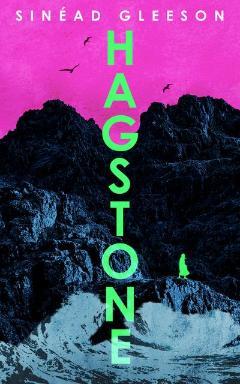 On a wild and rugged island cut off and isolated to some, artist Nell feels the island is her home. It is the source of inspiration for her art, rooted in landscape, folklore and the feminine. The mysterious Iníons, a commune of women who have travelled there from all over the world, consider it a place of refuge and safety, of solace in nature.
On a wild and rugged island cut off and isolated to some, artist Nell feels the island is her home. It is the source of inspiration for her art, rooted in landscape, folklore and the feminine. The mysterious Iníons, a commune of women who have travelled there from all over the world, consider it a place of refuge and safety, of solace in nature.
All the islanders live alongside the strange murmurings that seem to emanate from within the depths of the island, a sound that is almost supernatural – a Summoning as the Iníons call it. One day, a letter arrives at Nell’s door from the reclusive Iníons who invite Nell into the commune for a commission to produce a magnificent art piece to celebrate their long history. In its creation, Nell will discover things about the community and about herself that will challenge everything she thought she knew.
Sinéad Gleeson’s essay collection Constellations: Reflections from Life was published by Picador in 2019 and won Non-Fiction Book of the Year at 2019 Irish Book Awards and the Dalkey Literary Award for Emerging Writer. It was shortlisted for the Rathbones Folio Prize, the James Tait Black Memorial Prize and Michel Deon Prize. She is the editor of The Long Gaze Back: An Anthology of Irish Women Writers (named for a line from Maeve Brennan, which includes a story by Brennan), The Glass Shore: Short Stories by Women Writers from the North of Ireland and The Art of Glimpse: 100 Irish Short Stories. Sinéad also collaborates with artists and musicians, with commissions from The Wellcome Collection, BBC, Frieze and various galleries. In 2022, with Kim Gordon, she co-edited This Woman’s Work: Essays on Music, published by White Rabbit Books, and Hagstone is her first novel.
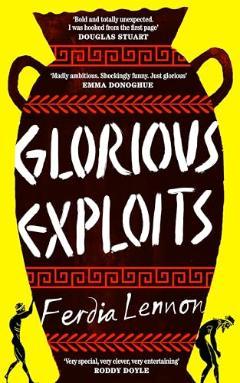 It’s 412 BC, and Athens’ invasion of Sicily has failed catastrophically. Thousands of Athenian soldiers are held captive in the quarries of Syracuse.
It’s 412 BC, and Athens’ invasion of Sicily has failed catastrophically. Thousands of Athenian soldiers are held captive in the quarries of Syracuse.
Lampo and Gelon are local potters, young men with no work. With not much to fill their time, they take to visiting the quarry, where they discover prisoners who will, in desperation, recite lines from Euripides in return for scraps of bread.
And so an idea is born: the men will put on a proper performance of Medea in the quarry.
But as the performance draws near and the audacity of their enterprise dawns on them, it becomes difficult to distinguish between enemies and friends. And Lampo, whose ambitions have never stretched beyond having enough coin for the next jug of wine, finds his aspirations elevated, his heart entangled and his courage tested in ways he could never have imagined.
Ferdia Lennon was born and raised in Dublin. He holds a BA in History and Classics from University College Dublin and an MA in Creative Writing from the University of East Anglia. His fiction has appeared in publications such as The Irish Times and The Stinging Fly. In 2019 and 2021, he received Literature Bursary Awards from the Arts Council of Ireland. After spending many years in Paris, he now lives in Norwich with his wife and son.
Glorious Exploits is his first novel. A Sunday Times bestseller, it was adapted for BBC Radio 4 and was the winner of the Waterstones Debut Fiction Prize 2024.
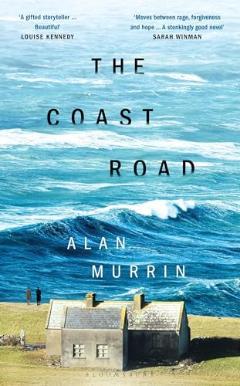 It’s 1994 in County Donegal, Ireland, and everyone is talking about Colette Crowley – the writer, the bohemian, the woman who left her husband and sons to pursue a relationship with a married man in Dublin. But now Colette is back, and nobody knows why.
It’s 1994 in County Donegal, Ireland, and everyone is talking about Colette Crowley – the writer, the bohemian, the woman who left her husband and sons to pursue a relationship with a married man in Dublin. But now Colette is back, and nobody knows why.
Returning to the community to try and reclaim her old life, Colette learns that they are unwilling to give it back to her. The man to whom she is still married is denying her access to her children, and while the legalisation of divorce might be just around the corner, Colette finds herself caught between her old life and the freedom for which she risked everything. Desperate to see her children, she enlists the help of Izzy, a housewife and mother, and the women forge a friendship that will send them on a spiralling journey – one toward a path of self-discovery, and the other toward tragedy.
Alan Murrin is an Irish fiction writer based in Berlin. In 2021 he was the winner of the Bournemouth Writing Prize for his short story “The Wake”, which went on to be shortlisted for short story of the year at the Irish Book Awards. He is the recipient of an Irish Arts Council Agility Award and an Arts Council Literature Bursary. He is a graduate of the prose fiction masters at the University of East Anglia. His work was featured as part of the New Irish Writing series in the Irish Independent. His work has been short-listed for the Irish Arts and Writers Festival short story prize, the New Irish Writing in Germany Prize, and he was long-listed for the 2021 University of Essex International short story prize. He writes for the Irish Times, Times Literary Supplement and Spectator.
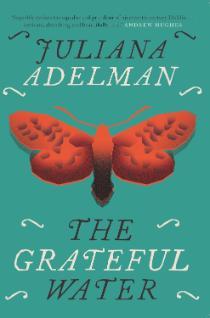 When a young butcher spots a strange shape on the banks of the River Liffey in the hot summer of 1866, the city of Dublin is gripped by a grimy case of infanticide. Detective Martin Peakin, an amateur entomologist and full of regret for his failed engagement, sets off in search of the murderer, eager to impress his superiors.
When a young butcher spots a strange shape on the banks of the River Liffey in the hot summer of 1866, the city of Dublin is gripped by a grimy case of infanticide. Detective Martin Peakin, an amateur entomologist and full of regret for his failed engagement, sets off in search of the murderer, eager to impress his superiors.
But, as Peakin draws closer, he begins to realise that not all is as it seems. Everyone related to the case is hiding something, while his own secrets threaten to bubble to the surface. The river binds these Dubliners together, but who will it divide in the end? And will Peakin actually solve this most shocking, ordinary and desperate of crimes?
Juliana Adelman is a historian and a writer. She lectures in history at Dublin City University where she teaches courses in the history of science, medicine and the environment. Her most recent non-fiction book is Civilised by Beasts (Manchester, 2020), a portrait of ninetheenth-cnetury Dublin that focuses on the importance of animals in urban life. Born in Boston, she has lived in Dublin longer than any other city.
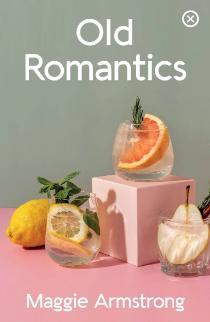 A woman pursues a man who cut ahead of her in a line. Two nice people report that a child is being left unsupervised at a local beach. Chance meetings, spontaneous trips away, and the thrill of the new: the anticipation and the ardour, the disappointment and casual disregard. Romances, old and new, shift and sour.
A woman pursues a man who cut ahead of her in a line. Two nice people report that a child is being left unsupervised at a local beach. Chance meetings, spontaneous trips away, and the thrill of the new: the anticipation and the ardour, the disappointment and casual disregard. Romances, old and new, shift and sour.
Maggie Armstrong’s debut is a collection of alternative romances told from a netherworld of love and disenchantment. These stories, at once familiar and strange, follow the interior biography of an indistinct Dublin woman, from early adulthood into motherhood and the trials of young family life right up to the pandemic. Slippery, flawed and acute, Maggie Armstrong’s narrator navigates a world of awkward expectation and latent hostility.
Maggie Armstrong grew up in Dublin and worked as a freelance journalist, theatre critic and features writer. She has also worked in academic publishing and as a ghostwriter. Her first short story was published by the Dublin Review in 2020 and she has since also been published by The Stinging Fly and Banshee.
The author was shortlisted for a 2023 Irish Book Award, and Old Romantics has also been shortlisted in 2024, under the ‘Best Newcomer’ category. Maggie lives in Dublin with her children.
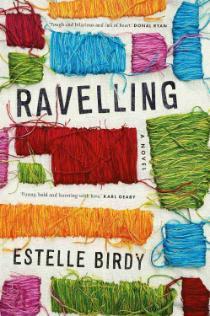 Set in Dublin's Liberties, Estelle Birdy’s explosively original debut Ravelling channels the energies and agonies of young men let loose in the city, their city, navigating the tumultuous trajectory of youth and young manhood, where they balance their hopes with the harsh realities of their present.
Set in Dublin's Liberties, Estelle Birdy’s explosively original debut Ravelling channels the energies and agonies of young men let loose in the city, their city, navigating the tumultuous trajectory of youth and young manhood, where they balance their hopes with the harsh realities of their present.
Hurtling between friendships, feuds, drug-deals, family and brushes with the law, this is modern Dublin as never before portrayed. Ravelling follows Deano, a weed-smoking hurling star, living with his aunt in an about-to-be-demolished flat; Hamza, a Pakistani Muslim atheist and precocious academic, who sells his ADHD drugs to the kids in a private school; Oisín, empathetic and iron-willed, who has begun to see his dead brother at the end of his bed; Congolese nature lover, Benit, who just wants to relax and hurl with the lads; Karl, a maybe-gay fashionista, dreaming of something better while immersing himself in his art.
Bound by friendship, place and the memories of those who’ve died too soon, these young men grapple with race, class, sex, parties, poverty, violence and Garda harassment, all while wondering what it means to be a man in twenty-first century Ireland.
Estelle Birdy is a writer, poet, book critic and yoga teacher who lives with her family in Dublin. Her debut novel Ravelling was a winner of the Irish Writers Centre Novel Fair in 2020. Her work is supported by the Arts Council of Ireland.
 Two teenage girls fixate on each other's bodies; a woman encounters an ex and reflects on the women's group that saved her; an older man's buried grief emerges in encounter with a woman driving a 4×4; and a waitress lacks the money to fix an impacted tooth as the cracks in her life begin to show.
Two teenage girls fixate on each other's bodies; a woman encounters an ex and reflects on the women's group that saved her; an older man's buried grief emerges in encounter with a woman driving a 4×4; and a waitress lacks the money to fix an impacted tooth as the cracks in her life begin to show.
Free Therapy takes us into the inner lives of women and men who are versed in the language of therapy, possessed with the self-knowledge needed to change their lives, but finding themselves unwilling to doing so. As her characters try and fail to connect, Rebecca Ivory reveals the ways in which we posture and present, and the insecurities that lie beneath.
Perfectly observed, wry and illuminated by moments of sympathy and wisdom, Free Therapy shows us ourselves as we truly are.
Rebecca Ivory was born in 1993 and is a writer based in Dublin. Her short fiction has appeared in the Stinging Fly, Banshee, Tangerine and Fallow Media. In 2020, she was awarded a Literature Bursary from the Arts Council of Ireland. Free Therapy is her debut.
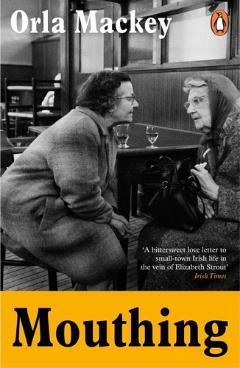 The bestselling Irish debut novel – a multigenerational portrait of small-town life bursting with caustic wit – for fans of Jon McGregor, Elizabeth Strout and Paul Murray.
The bestselling Irish debut novel – a multigenerational portrait of small-town life bursting with caustic wit – for fans of Jon McGregor, Elizabeth Strout and Paul Murray.
Ballyrowan is a sleepy corner of rural Ireland where nothing ever happens. Where everyone knows everyone else's business, and everyone has an opinion on it. Where family feuds simmer and intensify across the generations. Where young and old delight in dragging each other down like crabs in a barrel.
Following the fortunes of this small community from the mid-20th century to the early 21st, Mouthing is a bittersweet love letter to the pleasures (and frustrations) of village life.
Orla Mackey is a writer and teacher based in Kilkenny in Ireland. She studied English Literature at Trinity College, Dublin. Mouthing is her first novel.
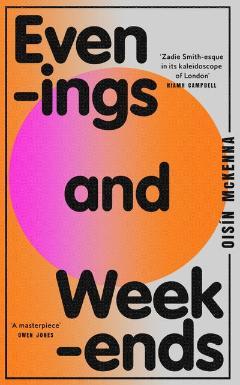 London, Summer 2019. Maggie, 30, pregnant and broke, is wondering whether having a baby with boyfriend Ed will be the last spontaneous act of her life. Ed, meanwhile, is trying to run from his past with Maggie’s best friend Phil and harbouring secret dreams of his own. Phil is falling for his housemate Keith, but Keith already has a boyfriend. And Phil’s mother, Rosaleen, is travelling to London to tell her son she’s just been diagnosed with cancer, but can’t seem to get hold of him.
London, Summer 2019. Maggie, 30, pregnant and broke, is wondering whether having a baby with boyfriend Ed will be the last spontaneous act of her life. Ed, meanwhile, is trying to run from his past with Maggie’s best friend Phil and harbouring secret dreams of his own. Phil is falling for his housemate Keith, but Keith already has a boyfriend. And Phil’s mother, Rosaleen, is travelling to London to tell her son she’s just been diagnosed with cancer, but can’t seem to get hold of him.
As Saturday night approaches, all their lives are set to change forever. It’s the hottest summer on record and the weekend is about to begin…
Oisín McKenna grew up in Drogheda, Ireland, and lives in London. He was awarded the Next Generation Bursary from the Arts Council of Ireland to write Evenings and Weekends – the highest award for an emerging artist in Ireland – and it was developed with further funding from Arts Council England. Evenings and Weekends has been awarded a 2022 London Writers Award, which supports London’s most promising underrepresented writers. In 2017, Oisín was named in the Irish Times one of the best-spoken word artists in the country. He has written and performed four theatre shows, including ADMIN, an award-winning production at Dublin Fringe 2019, and has written for outlets including the Irish Times on issues such as gentrification and the alienation of Dublin’s youth.
 Set in the Celtic Tiger (or boom) years of Ireland, The Maker’s Name brings readers up close and personal with three members of the Considine family, Malachi and his sons Rudi and Gus. When Malachi dies in a ‘freak accident’ this patriarch and founder of Hawthorne Meats is barely cold before Rudi attempts to take control of the meatpacking business and steal Gus’s share of the inheritance. With butchers’ knives drawn and treachery in play every which way, this real-life inspired and suspenseful novel entertains and shocks in equal measure.
Set in the Celtic Tiger (or boom) years of Ireland, The Maker’s Name brings readers up close and personal with three members of the Considine family, Malachi and his sons Rudi and Gus. When Malachi dies in a ‘freak accident’ this patriarch and founder of Hawthorne Meats is barely cold before Rudi attempts to take control of the meatpacking business and steal Gus’s share of the inheritance. With butchers’ knives drawn and treachery in play every which way, this real-life inspired and suspenseful novel entertains and shocks in equal measure.
As a Civil Engineer Seamus McKenna was involved in harbour development, the building of a natural gas platform, and many large construction projects. He obtained an MBA from Trinity College, Dublin in 1996, after which his career went international.
His debut novel, The Maker’s Name, while a work of fiction, takes inspiration from his career experiences. He is the author of the Omicron Forex Trading Manual, a best-selling treatment of algorithmic Foreign Exchange trading.
In 2023 he was awarded a Master’s Degree in Creative Writing by Dublin City University (DCU), Ireland. On 21st July 2024 he broadcast his short-form piece “Chickens, Hurling and a Famous Bootmaker” on RTE Radio 1’s Sunday Miscellany (New writing for radio).
 Lou Manson is an outsider when she joins the final-year class at Highfield Manor, Dublin’s most exclusive private school. Beyond the granite pillars and the wrought-iron gates is a world of wealth, privilege and potential. But Highfield is also hiding a dark secret – and Lou is here to expose it. When Lou befriends the beautiful and talented Shauna Power, her plans are thrown into turmoil. Speaking out against the school would mean betraying Shauna, and Lou soon discovers that the Highfield elite will go to any lengths to protect their own reputation…even when the consequences
Lou Manson is an outsider when she joins the final-year class at Highfield Manor, Dublin’s most exclusive private school. Beyond the granite pillars and the wrought-iron gates is a world of wealth, privilege and potential. But Highfield is also hiding a dark secret – and Lou is here to expose it. When Lou befriends the beautiful and talented Shauna Power, her plans are thrown into turmoil. Speaking out against the school would mean betraying Shauna, and Lou soon discovers that the Highfield elite will go to any lengths to protect their own reputation…even when the consequences
are fatal.
Thirty years later, Lou is called to testify in a new lawsuit against Highfield. But telling the truth means confronting her past – and there is one story she swore she’d never tell…
Fiona McPhillips is an Irish journalist, author, and screenwriter, and an editor at The Forge literary
magazine. Having published two nonfiction books, in 2019 she started an MA in Creative Writing at
Dublin City University, graduating with first class honours. When We Were Silent, the runner-up for
the 2021 Crime Writers’ Association Debut Dagger, is her first novel. Fiona lives in Dublin with her
three kids, two cats, and a dog. If she’s not writing, she’s probably playing or listening to music, or
organising some fantastical festival in the countryside just so she can DJ to all her friends. Otherwise,
she’ll be playing tennis.
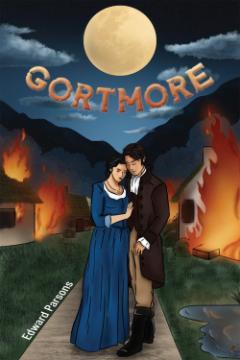 Recently arrived in Ireland, Anthea Greene finds herself swept into a situation of simmering dangers. Fifty years previously, in the time of Oliver Cromwell tragedy struck the small village of Gortmore which lies in Ireland under the Comeragh mountains, but the past has left much unresolved. Anthea is attracted to Mark Lee, the son of the landlord of Gortmore. She questions her love – a realist, she sees his faults. When she goes to stay with the neighbouring landlord who is her distant relative she feels trapped by her own poverty. She finds herself in a magnificent bleak mansion where dark passions threaten her. Beside the growing love between Anthea and Mark is the earthier love of Cáit for hot-headed Rory, the blacksmith’s son. The village of Gortmore is once again suddenly put in danger of destruction.
Recently arrived in Ireland, Anthea Greene finds herself swept into a situation of simmering dangers. Fifty years previously, in the time of Oliver Cromwell tragedy struck the small village of Gortmore which lies in Ireland under the Comeragh mountains, but the past has left much unresolved. Anthea is attracted to Mark Lee, the son of the landlord of Gortmore. She questions her love – a realist, she sees his faults. When she goes to stay with the neighbouring landlord who is her distant relative she feels trapped by her own poverty. She finds herself in a magnificent bleak mansion where dark passions threaten her. Beside the growing love between Anthea and Mark is the earthier love of Cáit for hot-headed Rory, the blacksmith’s son. The village of Gortmore is once again suddenly put in danger of destruction.
Edward Parsons is from the west of Ireland. He taught English and Art at secondary school. He now lives in Dublin.
While at a creative writing group prior to Covid, he got encouragement to write a novel. As a side effect of the isolation of that horribel time, he benefitted from this to write every day. He wasn't influenced by any writer in particular - when writing he always thought the book should just be a good read for the ordinary lover of fiction, both historical and romantic with a thriller element, with a strong plot and a fast pace.
 The gripping tale of a less than innocent – yet far from guilty – man unfolds as fifty-year old Pat Donaldson returns to Ireland, the land of his birth. Framed and imprisoned for a crime he did not commit, he finds himself the unwitting victim of Dublin’s most ruthless drug baron, a man who acts with impunity from behind a shield of propriety, all the while aided from a cabal of corruption.All seems lost for Pat until one sole glimmering light of hope, in the form of a young and honest guardian of the law, breaks through the seemingly impenetrable mantle of fate to secretly champion his cause. Good deeds and intentions must combine perfectly with the finesse of legal machinations to triumph over what, on the face of it, seems to be the perfect stooge caught in the perfect set-up.
The gripping tale of a less than innocent – yet far from guilty – man unfolds as fifty-year old Pat Donaldson returns to Ireland, the land of his birth. Framed and imprisoned for a crime he did not commit, he finds himself the unwitting victim of Dublin’s most ruthless drug baron, a man who acts with impunity from behind a shield of propriety, all the while aided from a cabal of corruption.All seems lost for Pat until one sole glimmering light of hope, in the form of a young and honest guardian of the law, breaks through the seemingly impenetrable mantle of fate to secretly champion his cause. Good deeds and intentions must combine perfectly with the finesse of legal machinations to triumph over what, on the face of it, seems to be the perfect stooge caught in the perfect set-up.
Robert Shandon is an Irish writer based in Dublin. Born in Belfast in 1963, he grew up amidst the chaos and carnage of Northern Ireland’s troubles. In recent years, after pursuing a forty-year career as a mechanical engineer, he began to devote his time to creative writing. Robert has travelled extensively and has lived in the UK, Germany and Canada for extended periods during the course of his career. His travel experiences over the years contribute heavily to his writing.
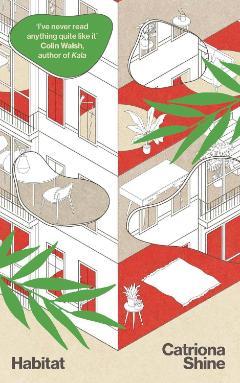 Habitat follows seven neighbours over the course of a surreal and life-changing week as their mid-century apartment building in Oslo begins to inexplicably break down around them.
Habitat follows seven neighbours over the course of a surreal and life-changing week as their mid-century apartment building in Oslo begins to inexplicably break down around them.
Connected by familial ties, long acquaintance, simmering feuds and longing glimpses, the residents of the building are bound to one another in more ways than they know. As each inhabitant is touched by strange and sinister phenomena, and their apartment-sized worlds begin to fray at the seams, they struggle to grasp that this is a shared crisis that cannot be borne alone.
This remarkable debut novel from one of Ireland’s most promising emerging talents is a startling parable of our uncertain age, as well as a beautiful and inciteful examination of how we deal with seismic events beyond our comprehension and how we can only truly find meaning through shared understanding.
Catriona Shine grew up in Ireland and now works as an architect in Oslo. She is a recipient of an Arts Council Literature Bursary Award 2023 and her writing has appeared in The Dublin Review, Channel, Southword and elsewhere. She was awarded the Penfro First Chapter Prize in 2016 and IAFOR Vladimir Devidé Haiku Award in 2017. She was shortlisted for the Seán O’Faoláin Short Story Prize 2022 and the Aesthetica Creative Writing Award 2023 among others. Habitat was longlisted for the McKitterick Prize 2022.
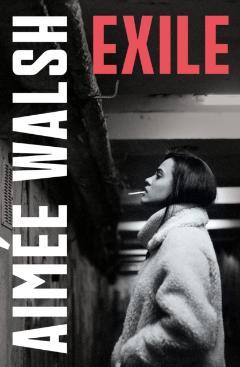 Leaving home was hard. Returning is impossible.
Leaving home was hard. Returning is impossible.
Fiadh's life is turned upside down on a night out in Belfast. Pretty soon everyone has heard the rumours about what happened. And just as she was beginning to finally figure everything out: she was feeling positive about her move to Liverpool, she was starting to get on top of her uni work. Now she’s in freefall.
She stops turning up to class and responding to her friends' messages. Her nights revolve around random hook ups, fuelled by alcohol. Fiadh's life descends into chaos, a chaos that nearly costs her everything.
Aimee Walsh's debut novel Exile was published by John Murray Press in May 2024. In 2023, Walsh was longlisted for the London Magazine Short Story Prize. Her short fiction, non-fiction, and book criticism has appeared in The Irish Times, The Observer, RTÉ Culture, Extra Teeth, Dazed, Refinery29 (US, Germany, Australia, and UK), and The Independent (UK, Spain, and Ireland).
In Spring 2022, she was a participant in the Faber Academy short story workshop ran by Lucy Caldwell. In 2021, she was the recipient of the Arts Council of Northern Ireland Emerging Writers Bursary in conjunction with the Irish Writers’ Centre.
 Seven-year-old Wilfrid lives a privileged life as eldest son of the warmaster to the King of Northumbria. But that life disappears when he is given away to the monks of Lindisfarne.
Seven-year-old Wilfrid lives a privileged life as eldest son of the warmaster to the King of Northumbria. But that life disappears when he is given away to the monks of Lindisfarne.
He is taken under the wing of Cuthbert, the eccentric prior, who tries to cure Wilfrid of the
demons that torment him. But everywhere the boy goes, he brings ill-fortune: to Fergus, drowned
at sea, or to Sigi, his brother, struck down by plague when Wilfrid finds his way back home.
As he comes of age and major events erupt around him – war with the Picts, religious schisms and
the queen’s desperate measures to conceive a son – he pieces together his history and the ageing
Cuthbert’s part in it.
Vividly conveying the hardships and compensa.ons of seventh-century monastic life, this
evocative tale – based on the chronicle of the real St Cuthbert – offers startlingly modern lessons.
Fiona Whyte has a BA in English and German, a master’s degree in English Literature and a
PhD in creative writing, all from University College, Cork. She spent her professional career as a
teacher of English and German, from primary to university level. She co-edited the inaugural
edition of Quarryman, UCC’s literary journal, and her short fiction has appeared in a wide variety
of anthologies. She has been awarded funding by the Arts Council of Ireland, Cork County Council
and the Irish Research Council. Let These Things Be Written, which was longlisted before
publication for the Exeter Novel Prize, is her debut novel. She lives in Crosshaven, Co. Cork.